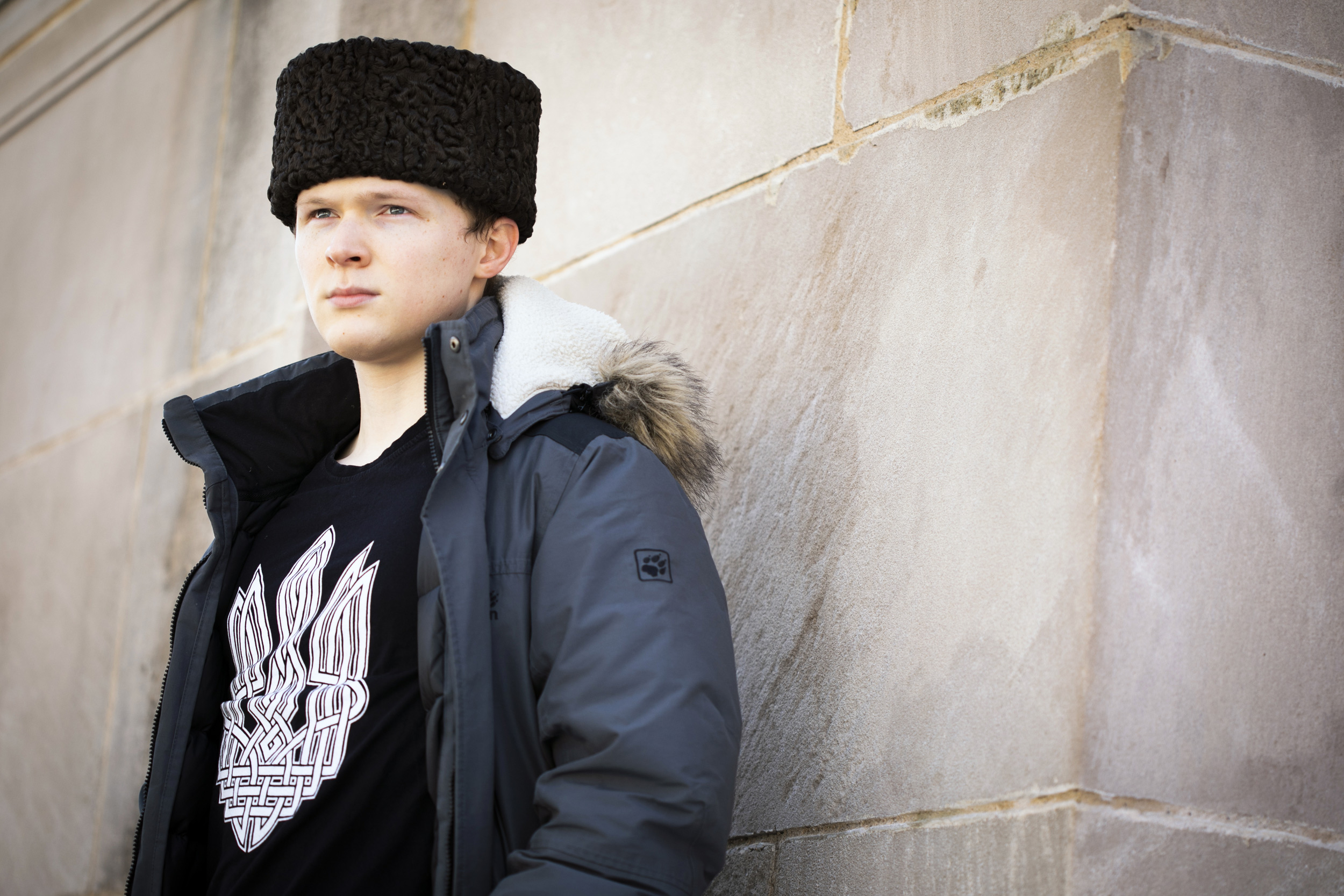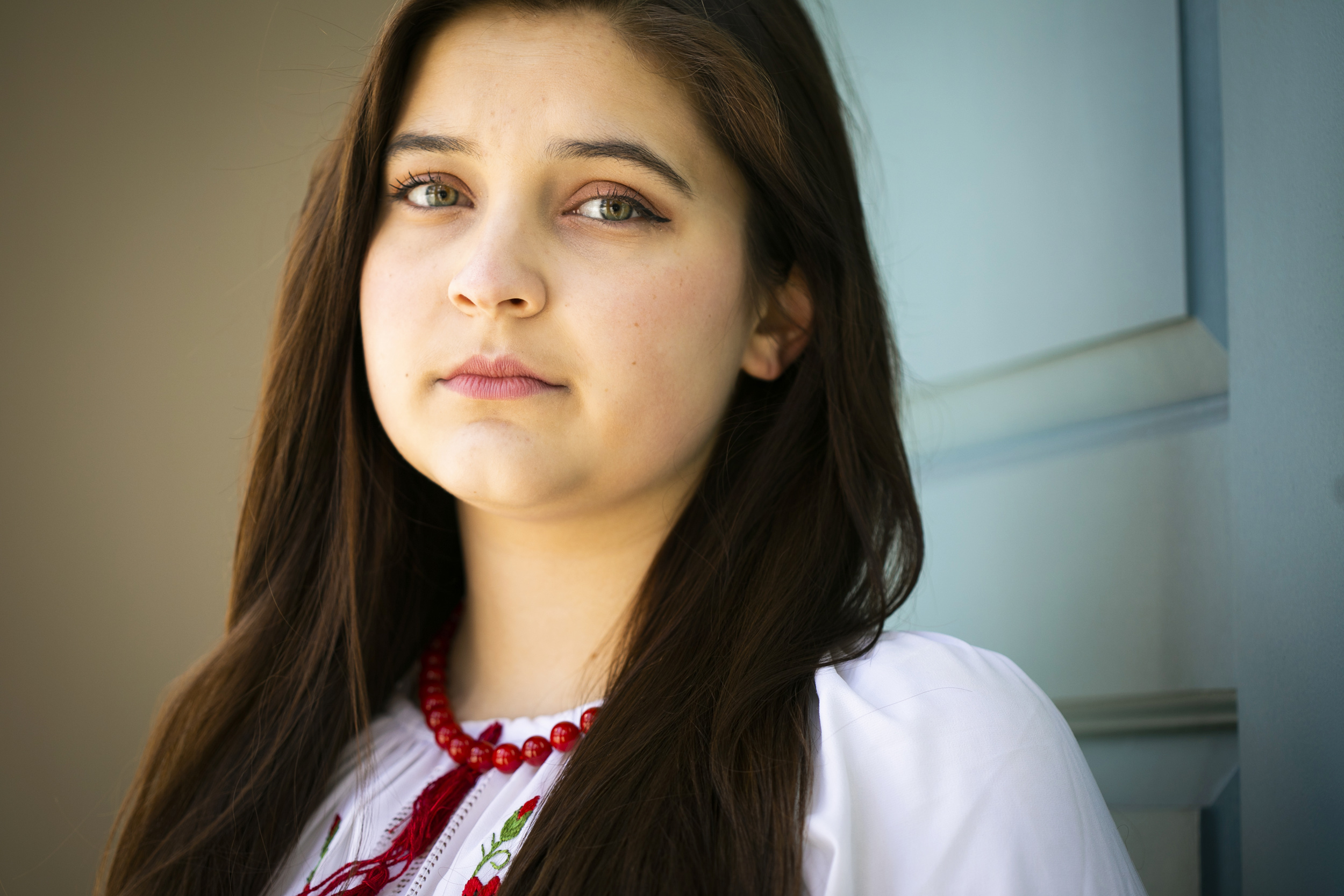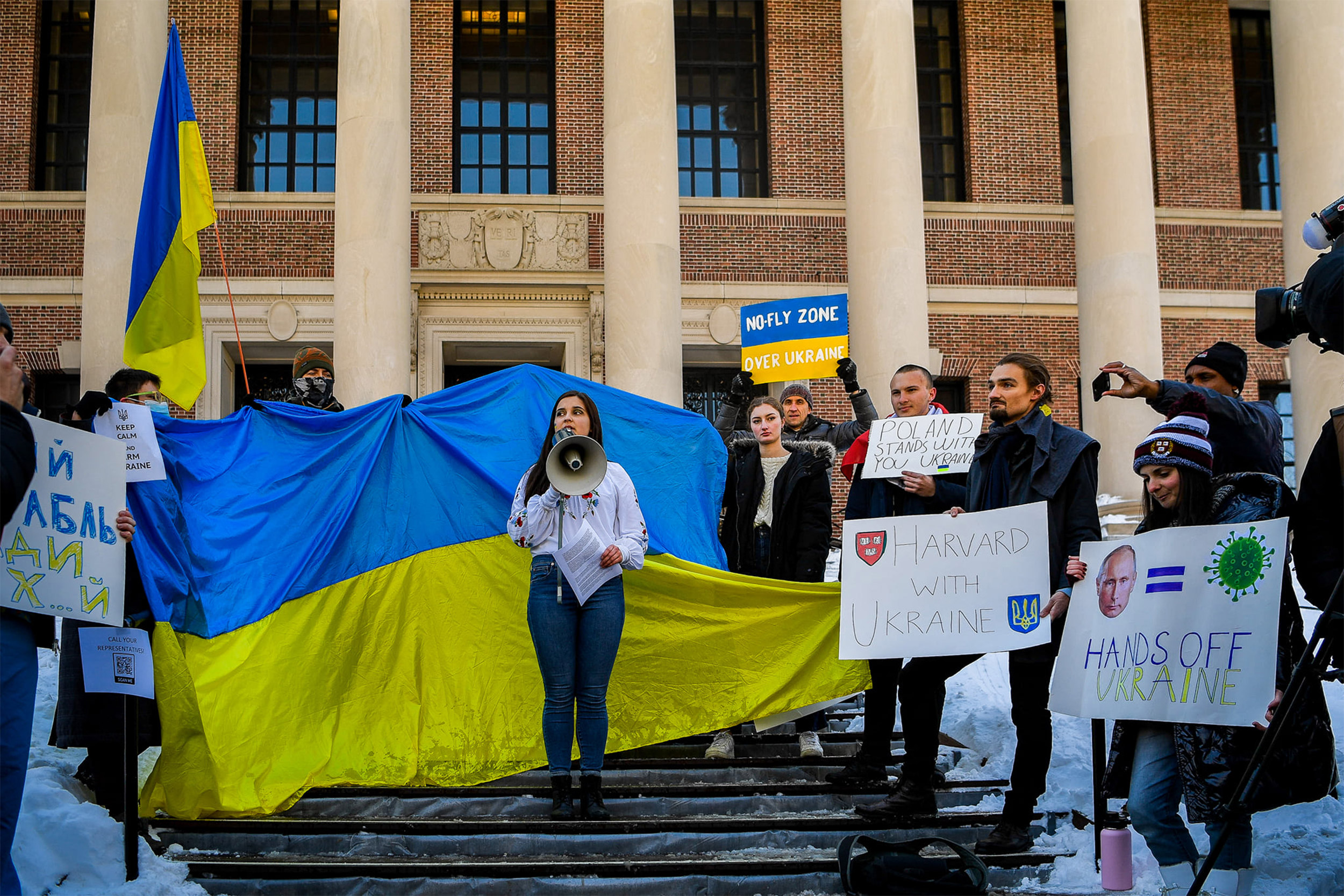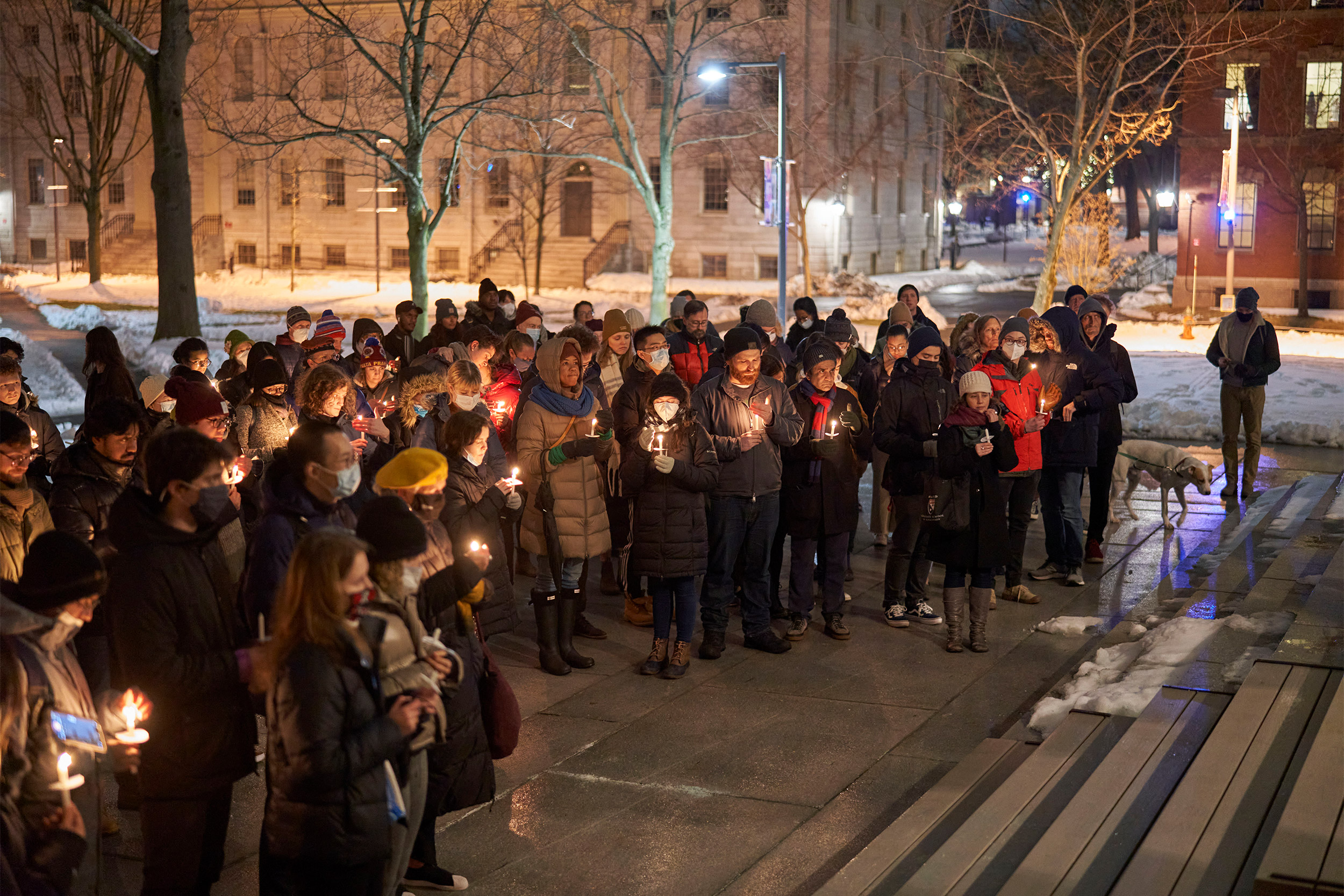
Georgiy Kent’s sister and mother are in Warsaw helping refugees and sending supplies to Ukraine.
Stephanie Mitchell/Harvard Staff Photographer
For students with loved ones in war zone, frayed nerves and proud hearts
Calls with family members inspire efforts to rally support for Ukrainians
For the past week, the world has watched Russia carry out a full-scale invasion of Ukraine, killing thousands and displacing more than 500,000. For Harvard student Georgiy Kent ’22, who lived in Kyiv for five years and whose mother is Crimean Tatar, seeing his family’s home region under attack has been acutely painful.
“Not feeling great,” said Kent, a dual concentrator in social studies and Slavic literature and culture. “It’s very hard to focus.”
Kent’s older sister, Elina Alem Kent, is a journalist who spent the last two years with the English-language Kyiv Independent. His mother flew to the city to help Elina just eight hours before the invasion began. They were able to escape the country and cross the border into Poland.
“They’re in Warsaw helping coordinate certain refugee assistance and also buying and sending supplies to people in need in Ukraine,” said Kent, who has been staying up late and waking early to keep up with the news and communications with family. While his loved ones are safe physically, the war has taken a mental toll on them and high school classmates who remain in Kyiv. He has kept in touch with friends through a social media chat they originally set up to coordinate a Minecraft server.

Worried about family members in and around Kyiv, Taisa Kulyk ’22 has been “calling family nonstop” for updates on the war.
Stephanie Mitchell/Harvard Staff Photographer
The news from Ukraine has been no less distressing for Taisa Kulyk ’22, who has been “calling family nonstop” for updates on the war raging in her parents’ homeland. Kulyk has been particularly worried about family members in and around Kyiv, where air sirens and bomb shelters are suddenly features of everyday life. A missile hit just miles from a cousin’s home, she said. Unsurprisingly, the violence has consumed Kulyk’s attention.
“I’ve spoken to multiple Ukrainian students and Ukrainian American students, and we’ve all been in the same boat, where it’s just been so difficult to go on with our lives, to focus on our studies and our academics,” she said.
Alexander Nikolaenko, a second-year physics Ph.D student, described a similar situation with his family in his hometown of Kharkiv, the former capital of Ukraine and site of some of the most devastating Russian airstrikes. Nikolaenko’s parents, 3-year-old brother, stepbrother, aunt, and grandmother plan to stay in Ukraine for now. Leaving Kharkiv has been extremely difficult due to dangerously heavy traffic and limited train service, Nikolaenko said.
The three students have worked in recent days to raise awareness about the war and Russia’s long history of aggression toward Ukraine.
“Russia has been waging a war in Ukraine since 2014,” Kent said. “Russia has been killing Ukrainians since 2014. They have been arresting, forcibly disappearing, and murdering activists in occupied Crimea since 2014. This is just another escalation. It’s important to frame it as a pattern of Russian behavior since Putin came to power.”
Last week, Kulyk teamed up with Maksim Bahdanovich ’24, a native Belarusian who fled the repressive regime of Alexander Lukashenko to Ukraine, to organize a rally in Harvard Yard for students with Ukrainian roots and for those who wanted to show support for the country’s resistance.
“In moments like these, people should not be indifferent or continue on with their individual lives unfazed,” she said. “As a University, we did not have anywhere to come together to support students going through this.”
Organizers created a LinkTree site with links to aid organizations and a list of lawmakers to call. Student speakers, including Kent, opened up about their experiences and demanded action from political and institutional leaders.


Taisa Kulyk ’22 (center) helped to organize a rally in Harvard Yard on Feb. 26 for students with Ukrainian roots and for those who wanted to show support for the country’s resistance. Students held a vigil on the steps of Memorial Church on Tuesday.
Photos by Julian Zhu and Daniel Huang
The easiest way to help is by pressing representatives to support Ukraine with military and humanitarian support, Kent said. Nikolaenko urged donations to humanitarian causes. Relaying a message from family members, he said that the Red Cross has delivered crucial help to Ukrainians who have lost electricity, water, and other services during the invasion.
“Ukrainian people have a really strong love for their country,” Kulyk said. “What the past few days have shown is that they’re very strong and resilient people. I think this has been, despite being one of the hardest things that people have gone through, a very unifying moment for the country.”




